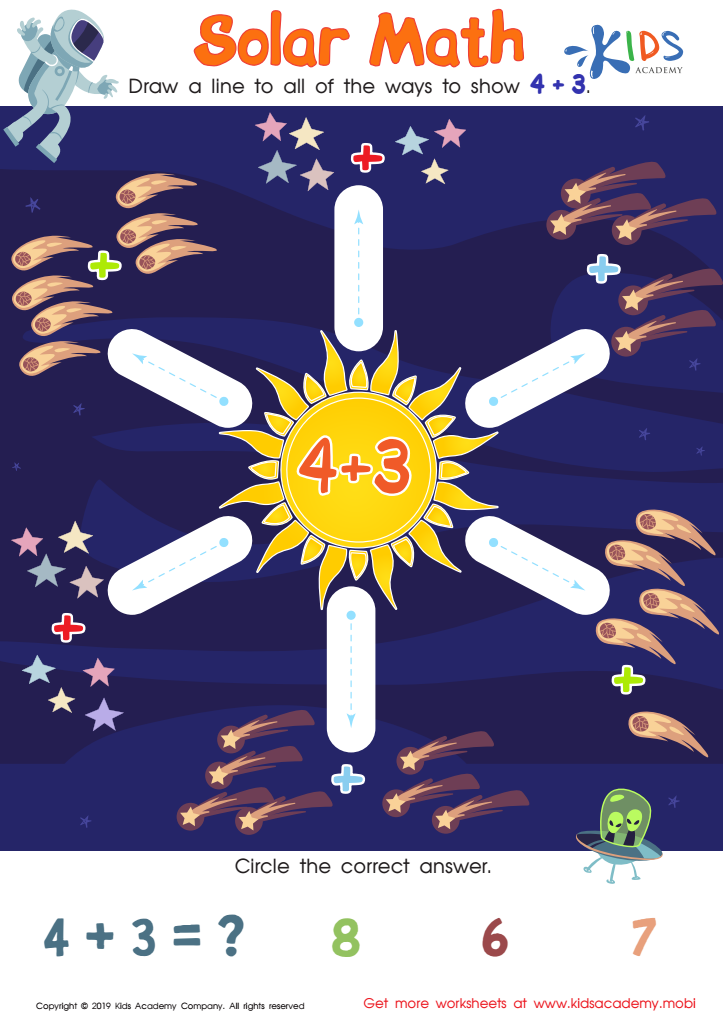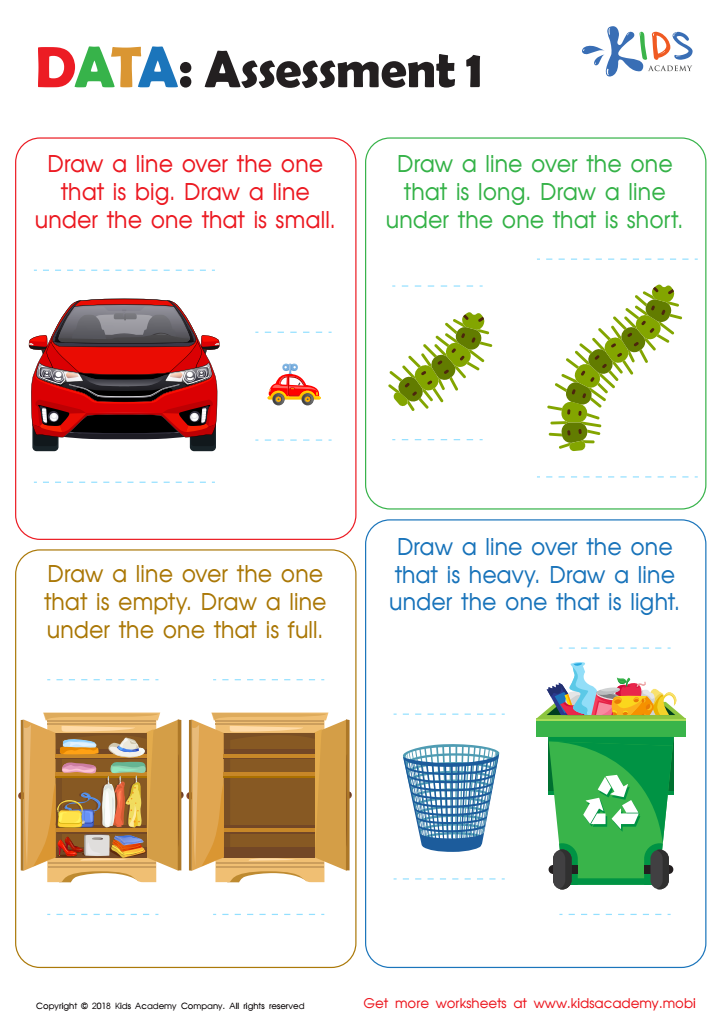Mathematical problem-solving Normal Worksheets for Ages 4-9
3 filtered results
-
From - To
Unlock your child's potential with our specially designed mathematical problem-solving worksheets for ages 4-9. Tailored to develop essential learning skills, our worksheets enhance math proficiency through engaging exercises, fun puzzles, and practical challenges. Each worksheet is crafted to facilitate a smooth learning journey, from understanding basic concepts to mastering complex problems. Perfect for building confidence, fostering critical thinking, and nurturing a love for mathematics, these resources support both classroom and home learning. Explore a rich variety of activities that grow with your child, ensuring a solid mathematical foundation. Empower your budding mathematicians today!


Solar Math Worksheet


Comparisons Worksheet


Data: Assessment 1 Worksheet
Mathematical problem-solving is crucial for youngsters aged 4-9 as it fosters critical cognitive skills that pave the way for academic success and everyday functionality. This early stage is a prime period for brain development. When children engage in problem-solving, they learn to think logically and sequentially. These skills improve their ability to understand complex concepts, both within and outside of math.
To parents and teachers, supporting this form of learning encourages a growth mindset, wherein children begin seeing challenges as opportunities to learn rather than insurmountable obstacles. This can cultivate resilience and perseverance. Furthermore, mathematical problem-solving can enhance a child's ability to reason and make decisions, skills essential for day-to-day life.
Incorporating mathematical problems also engages children in an enjoyable way, often through games or interactive activities. This enjoyment can lead to a lasting interest in mathematics, further reinforcing their academic trajectories.
Early competency in problem-solving builds a strong foundation for subjects incorporating math, such as science and engineering. As these fields increasingly drive innovation, building these skills early is crucial to preparing children to navigate and contribute to the world adeptly. Parents and teachers play pivotal roles in creating enriching environments that stimulate and support mathematical problem-solving, investing in a child's future success.
 Assign to My Students
Assign to My Students















